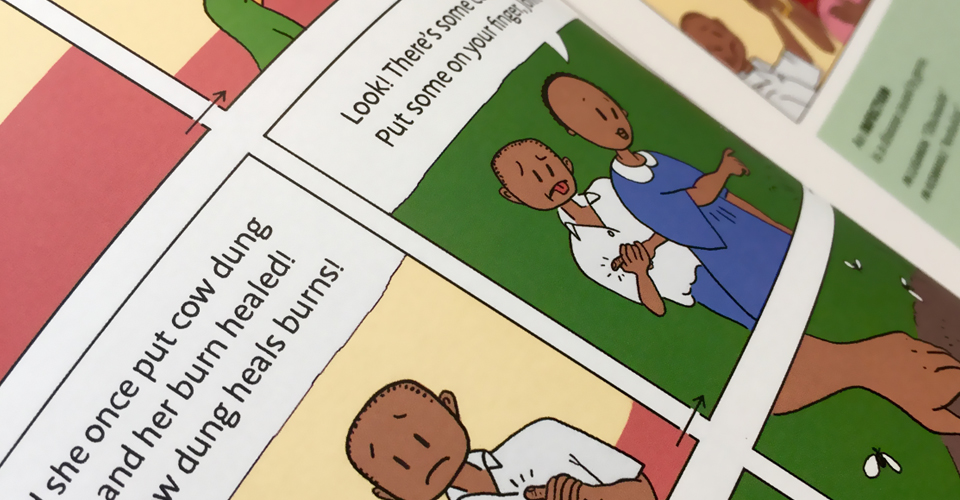Health – for primary school
Health – for primary school
What do you do when you burn your finger? Some people say “Cow poo will cure your burn.” They say that because when they had a burn, they used cow poo and their burn got better. That was their personal experience. But is it possible that their burn would have got better without cow poo?
There are lots of claims like this about what is good for our health. A claim is something someone says that can be right or wrong.
A treatment is something you do for your health – for example, taking a medicine, exercising, or even putting your finger in cow poo. A treatment effect is something a treatment makes happen – like making you feel better or worse, making you stronger, or curing a burn.
People make lots of claims about treatment effects. How can we tell which claims are right or wrong? To do this, you need to look at what supports their claim – its basis. For example, someone’s personal experience is not a good basis for a claim about what is good for your health. This is because we don’t know what would have happened if that person had done something else.
To know if a treatment (like putting cow poo on a burn) causes an effect (like a burn getting better), the treatment has to be compared to something else (like not putting cow poo on a burn). Researchers compare a treatment given to people in one group with something else given to people in another group. Those comparisons provide evidence – facts to support a conclusion about whether a claim about treatment effects is right or wrong. For those comparisons to be fair, the only important difference between the groups should be the treatments they receive.

There are lots of claims about what you should or should not do for your health. Just try counting how many such claims you hear or read each day for a week. This website can help you to think about which claims to believe and what to do for your health. There are three groups of cards with things that you should think about when 1) you hear a claim about the effects of treatments (BEWARE), 2) you read or hear evidence from treatment comparisons (THINK ‘FAIR’), or 3) you make a choice (TAKE CARE).
Claims: Many claims about the effects of treatments (something you do for your health) are not trustworthy. Often this is because the reason (the basis) for the claim is not trustworthy. The first (pink) group of cards are things you should watch out for when you hear or read a health claim. Beware of claims that are too good to be true, that are based on faulty logic, or that are based on trust alone.
Comparisons: It is always a good idea to ask what evidence there is to support a health claim. Evidence about the effects of treatments comes from comparing what happens when people use the treatment to what happens when people do something else. The second (yellow) group of cards can help you decide how trustworthy that evidence is. Make sure that treatment comparisons are fair, that summaries of studies comparing treatments were done carefully, and that you are not misled by the way that treatment effects are described.
Choices: Knowing how trustworthy the evidence is can help you make good treatment choices. But there are other things you need to think about when you decide what to do and what not to do for your health. The third (blue) group of cards can help you make good choices. Take care when you decide what to do. Think carefully about what your problem is and what your options are, whether the evidence is relevant, and whether the advantages are better than the disadvantages.
Please contact us and let us know if you find this website helpful and any ideas you have about how to improve it.

The Health Choices Book includes a comic story that introduces and explains some of the things you should think carefully about when you hear claims about the effects of treatments and make treatment choices. You can get a free copy of the book here: